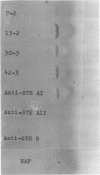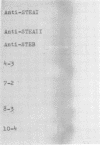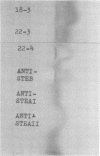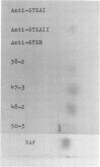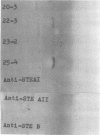Abstract
A method, repetitive counterelectrophoresis (RCE), was devised for detecting specific antibody to streptococcal esterase (STE). Reference antisera were prepared by immunizing rabbits with STE of streptococcal strains as follows: SS379 (group A, type 40), 69882 (group A, type 49), and H36B (group B, type Ib). Some human sera, derived from patients with scarlet fever, were also used as references. By this method, we have confirmed the immunological specificity of the STE produced by strains SS379 (STE-AI), 69882 (STE-AII), H36B (STE-B), and Austin (STE-C, group C) and have shown that the STE produced by strain 10706 (group C) is immunologically identical with STE-AI. Each STE presented a distinct colored line with the respective homologous antibody upon development of enzyme activity except for STE-AII, which formed a round spot with the homologous antibody. Horse activating factor (Hayano and Tanaka, 1973) formed a round spot with each STE. The factor in serum that reacted specifically with STE seemed to correspond to gamma globulin.
Full text
PDF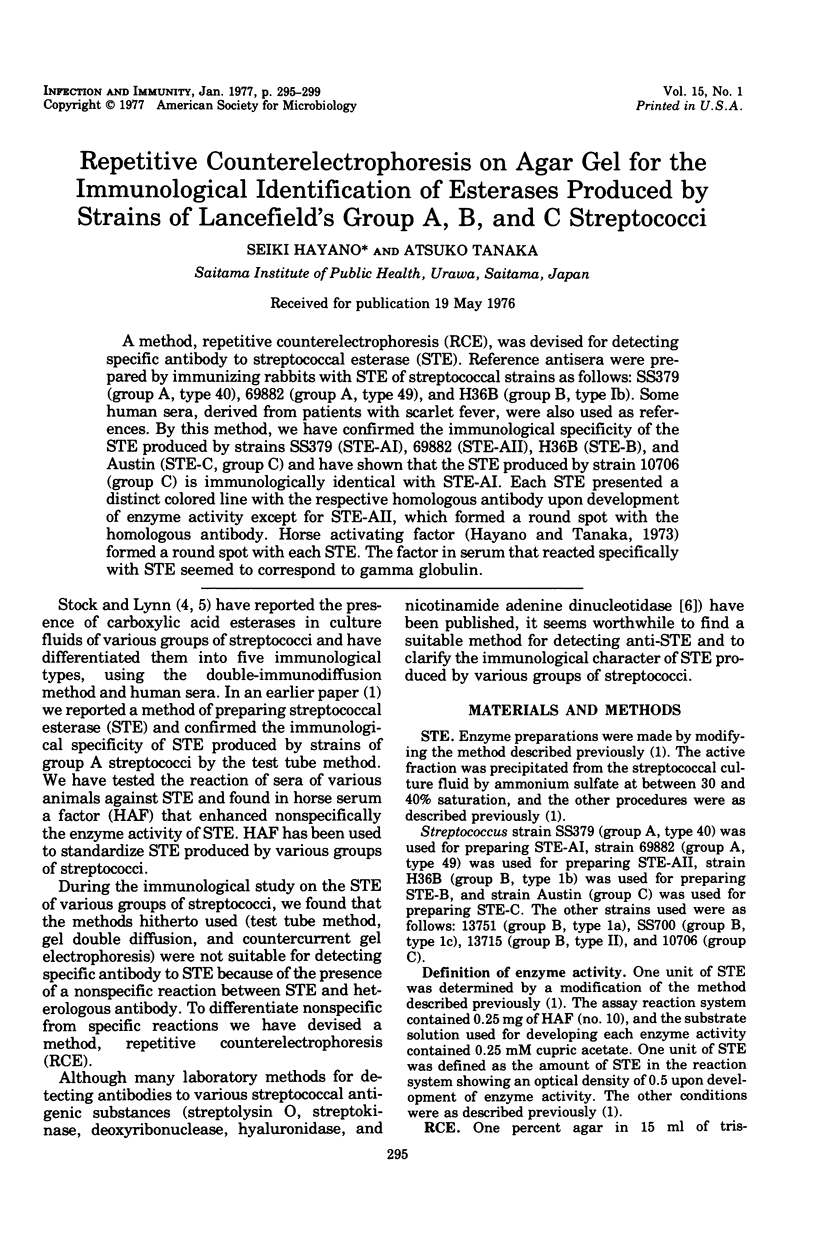
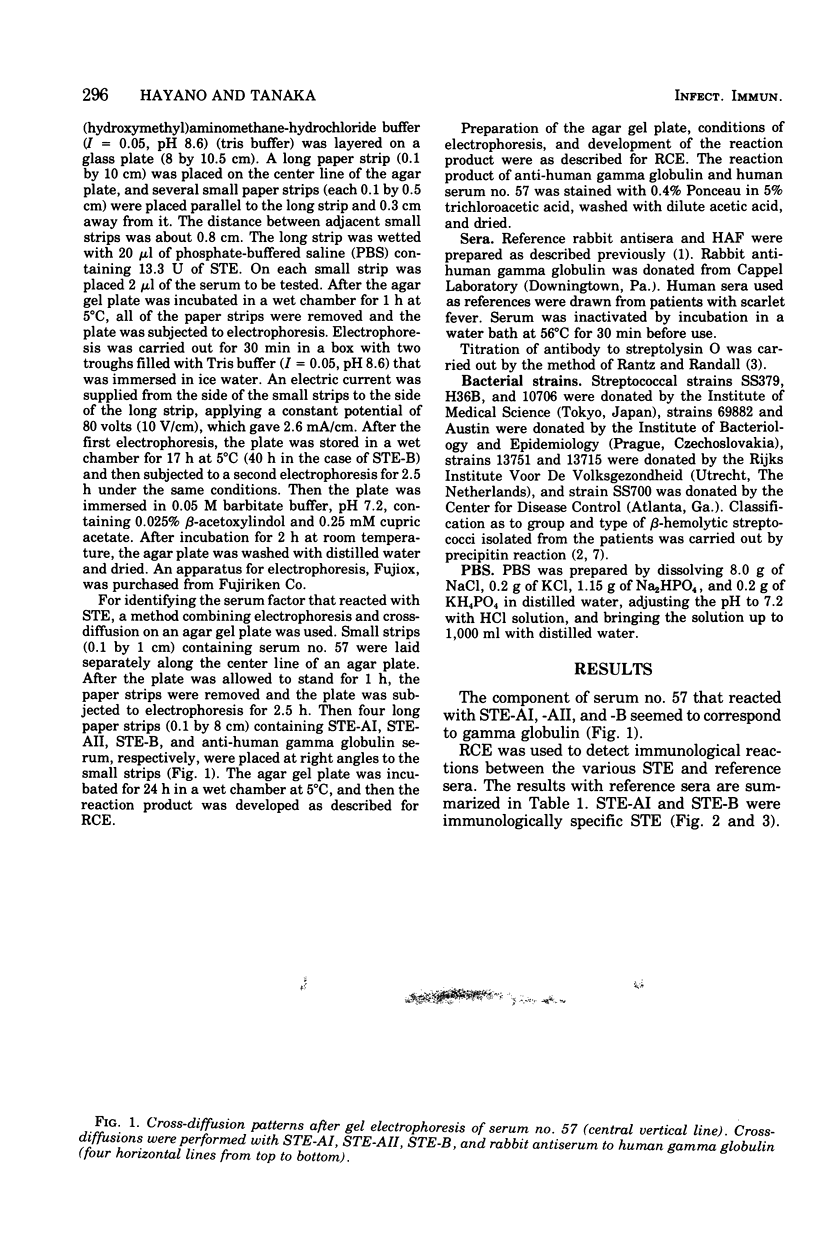
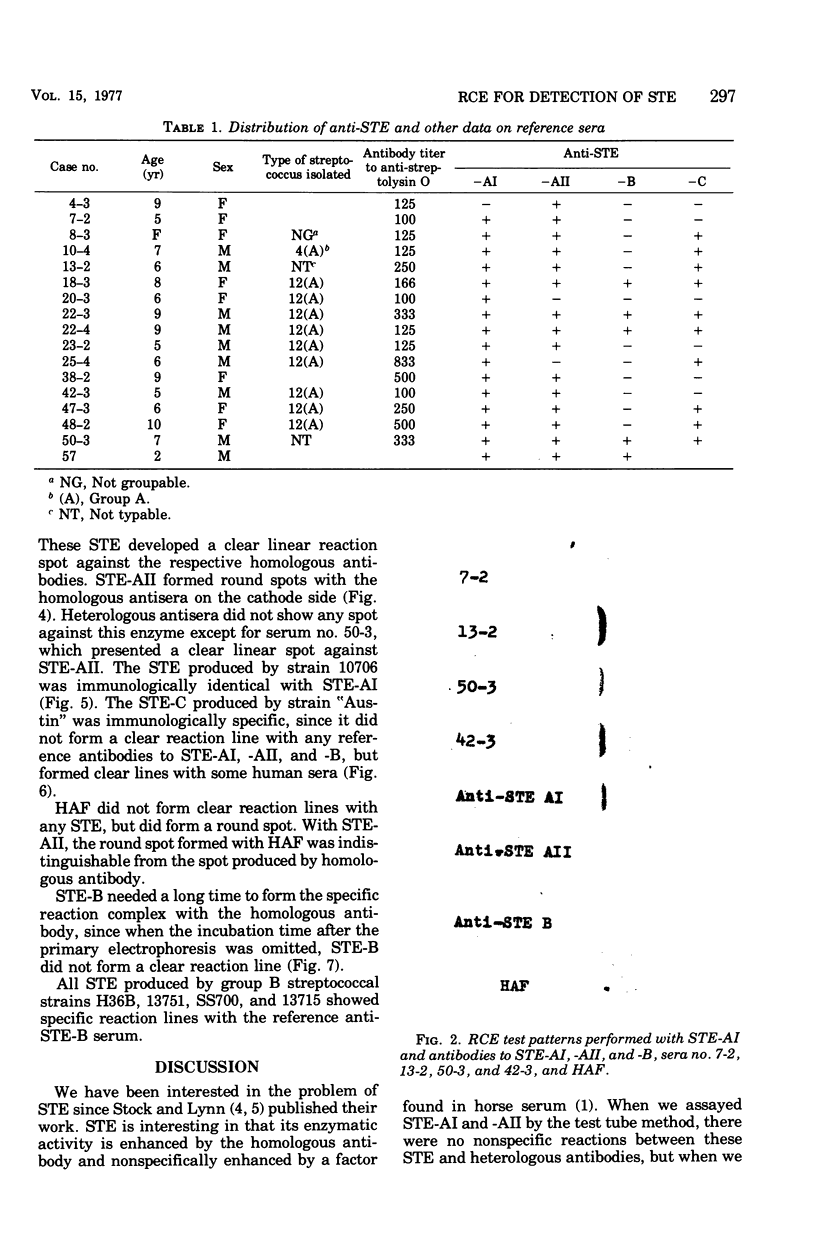
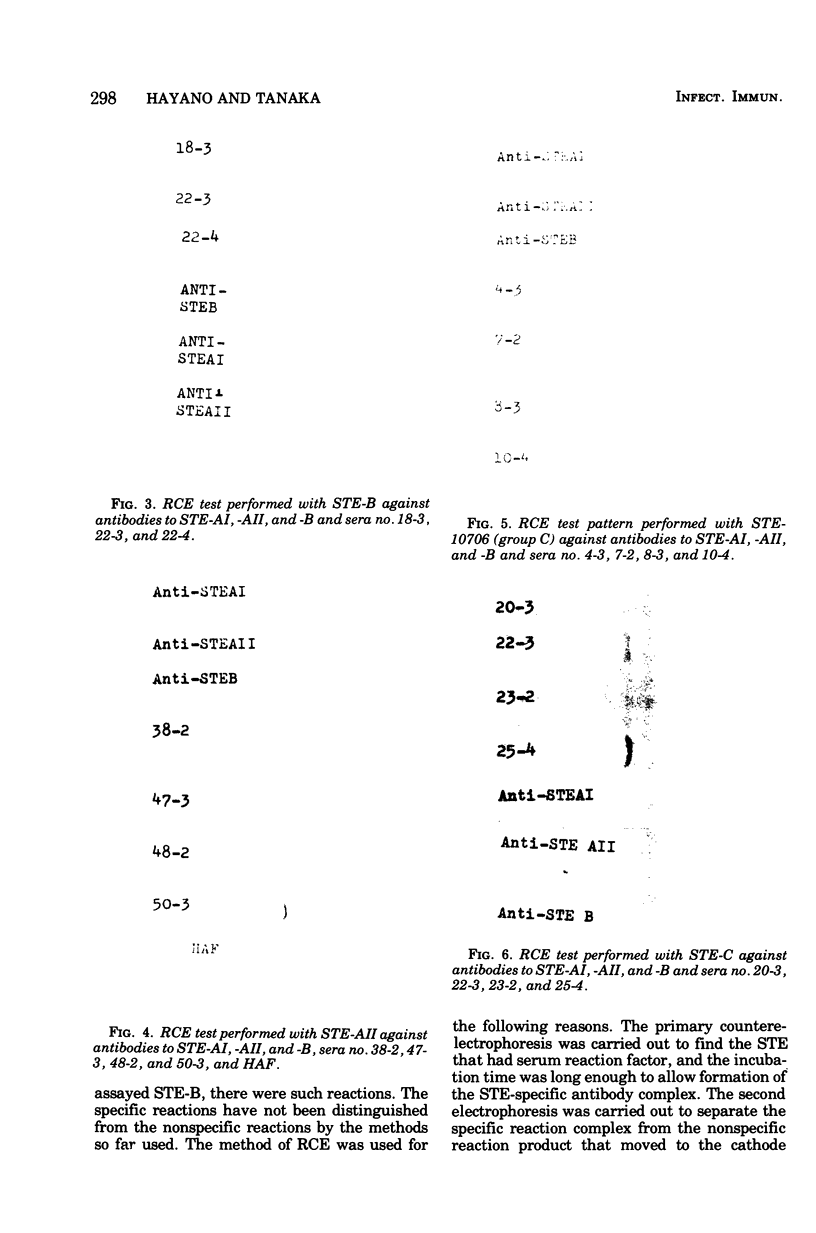
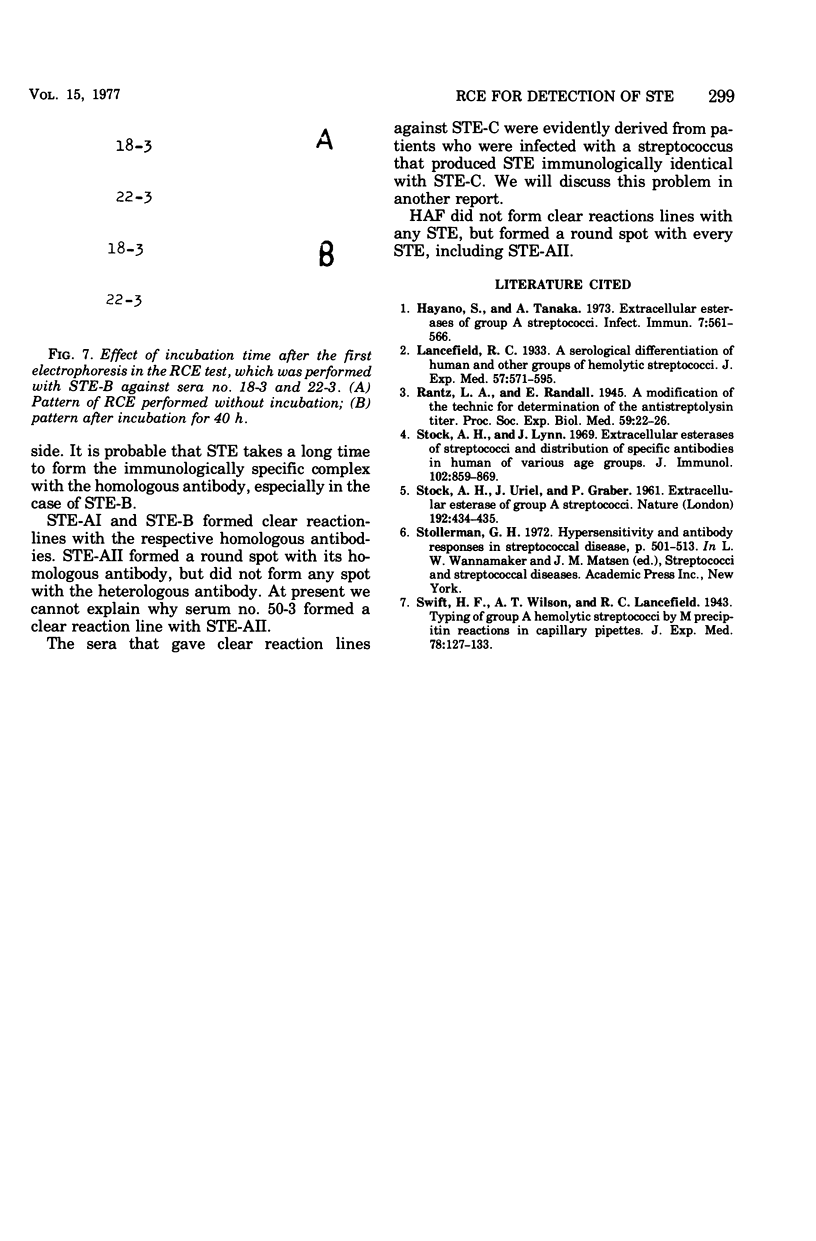
Images in this article
Selected References
These references are in PubMed. This may not be the complete list of references from this article.
- Hayano S., Tanaka A. Extracellular esterases of group A streptococci. Infect Immun. 1973 Apr;7(4):561–566. doi: 10.1128/iai.7.4.561-566.1973. [DOI] [PMC free article] [PubMed] [Google Scholar]
- STOCK A. H., URIEL J., GRABAR P. Esterase in extracellular concentrates of group A streptococci and the homologous antibody. Nature. 1961 Nov 4;192:434–435. doi: 10.1038/192434a0. [DOI] [PubMed] [Google Scholar]
- Stock A. H., Lynn R. J. Extracellular esterases of streptococci and the distribution of specific antibodies in human sera of various age groups. J Immunol. 1969 Apr;102(4):859–869. [PubMed] [Google Scholar]




